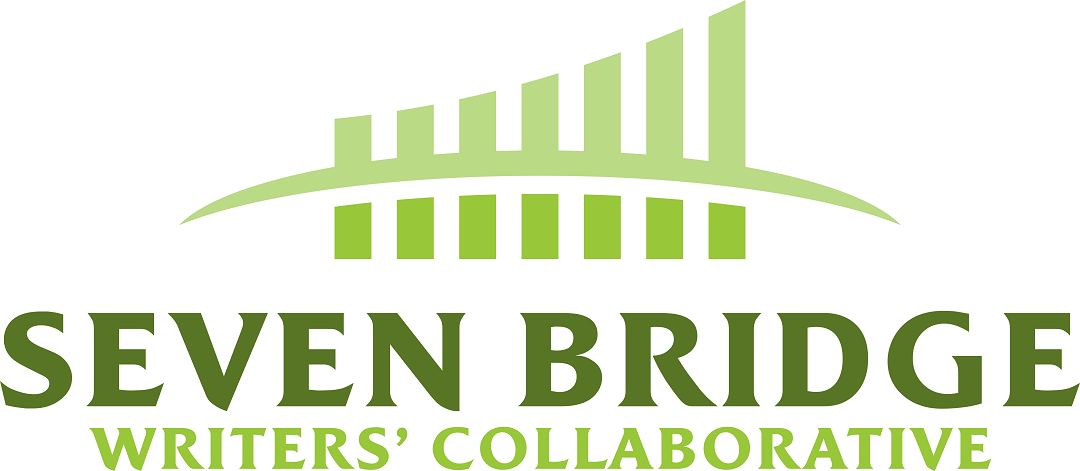Many people enjoy reading mysteries or watching mystery stories on television or in film. They remain popular, and are a great way to escape, to match wits with a problem solver, and to learn about the motivations and lives of people in places and times other than our own. On Saturday, October 19th and 26th, Seven Bridge Writers’ Collaborative is hosting an in-depth talk from mystery writer, Dale T. Phillips, who will discuss the types and tropes of mystery novels, and what makes a good, engaging mystery, and why they are so popular and long-lasting.
Dale T. Phillips has published novels, story collections, non-fiction, and over 70 short stories. Stephen King was Dale’s college writing teacher, and since then, Dale has found time to appear on stage, television, radio, in an independent feature film, and compete on Jeopardy (losing in a spectacular fashion). He’s a member of the Mystery Writers of America and the Sisters in Crime. He’s traveled to all 50 states, Mexico, Canada, and through Europe.
Many mystery writers create stories from their experience, and Dale always wanted to feature Portland, Maine, as a setting for a mystery. Thus, began the Zack Taylor series, with the latest title (#6), A Darkened Room, now available. While still working as a Technical Writer, Dale is continuing to produce stories and novels that sell. He’s based the Zack Taylor series as an homage to the much-beloved Travis McGee series of John D. MacDonald.
When asked, “What can people expect from the workshop and intensive?”, he told SBWC:
“The first Saturday will examine the origins and development of the mystery novel. We’ll go into the construction of a mystery novel, what pieces to include, and how to create and put them together for a coherent story that matters. We’ll discuss examples of good (and maybe bad) mysteries, eternal favorites, and what makes them attractive. We’ll examine character, the heart and soul of a good mystery. Plot does matter, but we also need someone that the story centers on. What are their motivations for investigating? Are they in jeopardy? Did the crime involve someone they care about? What are the stakes? How does the crime involved affect the protagonist and the world at large? What makes readers care about the story and the characters? Then we’ll go through the process for laying the rest of the groundwork of the mystery: suspects, clues, red herrings, pacing, and how to create page-turning suspense.
While the plots of mysteries of the past could involve lesser crimes, such as the theft of jewels or other valuables, including information, today’s publishers usually prefer murder as a hook for the mysteries they publish. They like the body to appear early on, preferably in the first chapter. Then the sleuth protagonist(s) must work to puzzle out the whodunnit. And there are so many types of investigators: from police to private detectives, and amateurs of all stripes, from hard-boiled ex-cons to genteel ladies who quilt. We have mystery solvers who remain stationary, to those who wander the globe. There are blind investigators, or those otherwise disabled, dead and undead investigators (yep), alien investigators, and sleuths from the distant past or future. There are even mysteries solved by other non-humans, such as cats and dogs. Something for just about everyone.
After the first session, with discussion and question-and-answer, the second Saturday session will be a hands-on workshop for those who have written a portion of a mystery. This class is a must for anyone dreaming of publishing a mystery novel or story. A select group of participants will bring in samples of their work for evaluation and feedback. They’ll hear what works in their writing sample, and what might be improved. They’ll get to discuss the real nuts-and-bolts of creating and improving a good mystery story, and ways of making their writing better. For a nominal fee, participants will get a professional critique, something which costs far more in other venues. They’ll also hear other pieces being evaluated, so they’ll get a good idea of what publishers, reviewers, and readers are looking for (and what to avoid in their writing).
And what to do when the story is done? These writers will get valuable publishing advice for when the work is finished. They’ll learn what to expect, and what the writer does with a completed story. They’ll get a list of resources for further learning. All this will be offered as a part of the SBWC mission to aid writers in improving their craft and understanding of the writing process.”

